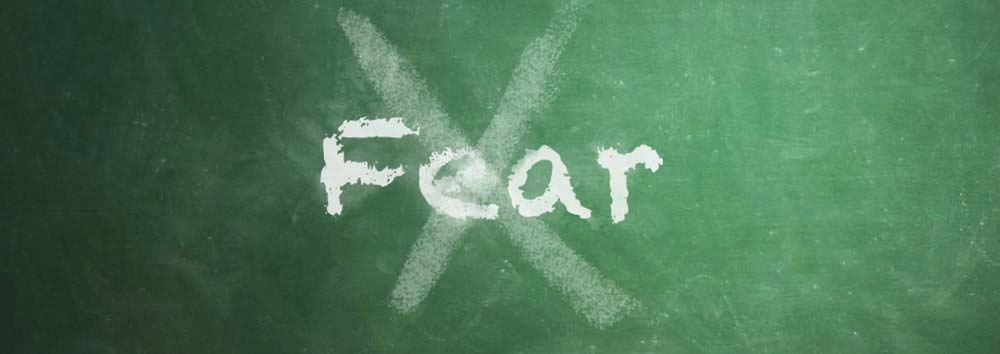None of us can ignore the Boston Marathon bombings or the plan to derail a Via Rail train. These two events remind us that terrorist attacks don’t all happen on foreign, hostile soil and, in fact, can occur closer to home.
These unspeakable, irrational acts have the ability to immobilize us through fear; and the media is all too willing to accommodate. The challenge is that if we let fear overwhelm u, then everything from movie theatres to planes, trains, boats and schools appear unsafe. We begin to dramatically change how we live our lives. We make our world smaller in order to feel safer.
Fear is the one human emotion that can prevent us from stepping outside our comfort zone, to take chances (in our career, our relationships), to push ourselves to do those things we have quietly dreamed about doing but haven’t done yet.
If you let fear take control, you may risk living a life of regret. As highlighted in a previous newsletter, I wrote about questions posed to terminally ill individuals. All of them wished they had not been afraid and had experienced more. In most cases a person’s fears are manufactured and fleeting where regret may cast a lasting shadow.
So may I suggest the best response for the most recent tragic events is to reach out to those affected and let them know you care. And stop shying away from something you would like to do but are too afraid to try. I can assure you that, whatever your fear is, it is nothing compared to the joy and elation of accomplishing something memorable.
What would you like to do that haven’t already done?
All the best with your answer.
Why Me?
Why is it that a friend who has had a preventative double mastectomy which leads to further complications can say “I’m lucky, at least I don’t have cancer”? Why is it that my father, who lost the peripheral vision in one eye due to a stroke, said “I can’t complain, I’ve had vision in both eye for 69 years”?
Why is it that other people say “Why is this happening to me? I’m so unlucky”. Why some people think their bad luck is the fault of other people? In some cases, the answer is that they are asking themselves and others the wrong questions and, in doing so, are shifting accountability. This is a recipe for disaster, in that the only person we can control and change is ourselves. So, in so far as we shift the burden to other people, we ourselves do nothing, or worse, continue to do the same things (with slight modifications at times) and expect a different, more positive result.
In John G. Miller’s book QBQ! (The Question Behind the Question), the author focuses on the issue of lack of personal accountability and this has resulted in an epidemic of blame, victim thinking, complaining and procrastination. He goes on to say that no organization or individual can survive (compete), achieve goals, provide outstanding service or have an exceptional team without personal accountability. One of the red flags when you are in a discussion or just self-reflecting is, does the your statement start with “Who”, “When”, or “Why”? If so, catch yourself and change the sentence structure so you begin the question with “What” or “How”. Ensure the sentence contains an “I” and focuses on action. We all have to take responsibility and be accountable for our actions, so try changing your questions: have some fun. Who knows, it just might work.




